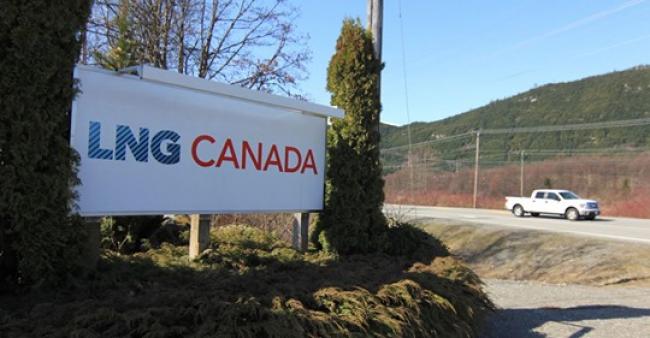Articles Menu

Dec. 12, 2019
The LNG Canada export plant, under construction on the northern coast of British Columbia, opens in 2025. At full capacity, the plant will produce about four-million tonnes of greenhouse gases each year, a large increase in provincial emissions.
But what if LNG could also produce carbon credits for Canada in the battle against global warming? Backers of liquefied natural gas argue that exports could, in theory, displace coal power in Asian countries. More electricity from LNG and less from coal is a win for the planet, because emissions do not abide by international borders.
Canadian LNG, the argument goes, is good for the global environment. The chief executive of CIBC supported this position last month. The oil industry, meanwhile, believes LNG is the “largest contribution” Canada can deliver for climate change. And advocates believe Canada should get credit for this.
If this sounds a little too good to be true, that’s because it is.
The hope that Canada can get credit for LNG exports is pinned on Article 6 of the Paris Agreement. Article 6 raises the possibility of swapping emissions credits between countries; drawing up the rules for that is a central issue at COP25, the annual United Nations meeting on climate change that ends on Friday in Madrid.
Canada is in the thick of the negotiations, as it has been from the start. Four years ago, Canada’s then environment minister, Catherine McKenna, helped lead talks that led to Article 6, and earlier this year, Ottawa sounded interested in its potential for LNG exports.
But this month, Jonathan Wilkinson, the new environment minister, backed off. LNG produces “big, big emissions,” he said, and problems around Article 6 include the double-counting of emissions reductions. He said the article offers Canada no immediate promise for LNG.
This only make sense. The first clause of the article talks about “higher ambition” in taking on climate change. Building more fossil-fuel infrastructure doesn’t fit this bill.
But the main problem is practical. Why would another country hand over credit for lower emissions to Canada? If Country X decides, “Yes, let’s buy Canadian LNG, and let’s not build another coal plant,” why would Country X offer the reduced emissions to Canada rather than book them within its own borders? LNG Canada, an international consortium run by Royal Dutch Shell, will sell gas at market prices. The buyers have no incentive to give Canada anything.
Article 6 envisions two countries reaching a voluntary deal on what are called “internationally transferred mitigation outcomes.” Even if a deal is struck, the credits would likely be costly – a cost that would be shouldered by all Canadians. And how exactly will it be proved that LNG displaces coal rather than, for example, discourages investments in renewables? Further, what if Country X is China? Negotiating an Article 6 deal with Beijing would be anything but fun.
The trade of emissions credits is perfectly reasonable. It’s a feature of cap-and-trade markets. Canada does have a real stake in Article 6 – but it’s not LNG. As Canada pushes to reach its 2030 goals under the Paris Agreement and then looks toward net-zero emissions by 2050, the country will need all available options. Buying credits from low-emission countries – which is how Article 6 is actually conceived – could well be part of Canada’s arsenal.
The Ecofiscal Commission think tank summed up the alluring but false promise of Article 6 like this: “In the real world, it’s unlikely that such arrangements could be made for Canadian export deals. … It’s not clear what Canada could offer.” Mr. Wilkinson this week was also pragmatic. Canada, he said, is focused on “reducing our own domestic emissions.”
At COP25 in Madrid, Canada’s work on Article 6 is important to our national interests. But to pin much hope on the article for Canada’s emissions reductions is an unwise strategy. It will play only a small supporting role in the real fight against climate change.
On LNG, the federal government’s newfound skepticism is especially warranted. An essential pillar of the UN Framework Convention on Climate Change is territorial emissions. An LNG plant in B.C. produces emissions in that province. Developing more fossil fuels comes at a cost, and it’s not realistic to hope Canada gets credit for doing so.